Updated date: 05/04/2025 05:23:17

DTO - With a strategy for sustainable agricultural development, Dong Thap province has launched a smart rice farming model in response to the "Project for sustainable development of 1 million hectares of high-quality and low-emission rice associated with green growth in the Mekong Delta by 2030" (referred to as the Project). This leverage helps people increase product value and the opportunity to sell carbon credits.

Quyet Tien Ecological Agricultural Production Cooperative (Phu Thanh A Commune, Tam Nong District) implements a circular agricultural production model, applying drones to farming, bringing high economic efficiency.
Potential and effectiveness
According to experts, the carbon market in Vietnam is gradually taking shape more clearly and completely. Therefore, since 2022, the Government has issued Decree No. 06/2022/ND-CP dated January 7, 2022 on greenhouse gas emission reduction and ozone layer protection, in which Article 91 details greenhouse gas emission reduction and Article 139, the formation and development of the carbon market. Next, on January 18, 2022, the Government issued Decision No. 01/2022/QD-TTg stipulating the list of sectors and establishments that must conduct greenhouse gas inventories, with 1,912 establishments participating in the domestic carbon market...
With these potential advantages, on November 27, 2023, the Prime Minister issued Decision No. 1490/QD-TTg approving the Project. Dong Thap is one of five provinces in the Mekong Delta selected by the Ministry of Agriculture and Environment for piloting. The goal of Dong Thap province when participating in the Project is to form a specialized area for high-quality and low-emission rice cultivation associated with reorganizing the production system according to the value chain, applying sustainable farming processes to increase value, sustainable development of the rice industry, improve production efficiency, business, income, life of rice growers, protect the environment, adapt to climate change and reduce greenhouse gas emissions.
Accordingly, Dong Thap has registered a cultivation area of high-quality rice in the whole province by 2030 of 161,000 hectares. This will be implemented in 8 districts and cities including: Hong Ngu, Tan Hong, Tam Nong, Thanh Binh, Thap Muoi, Cao Lanh, Lap Vo and Hong Ngu city.
Recently, the province has implemented a model of the Project at Thang Loi Agricultural Service Cooperative (Thap Muoi district), strictly ensuring the standards and criteria of the Project on infrastructure, cultivation processes, production and consumption linkage, and emission reduction. Mr. Nguyen Van Hung - Director of Thang Loi Agricultural Service Cooperative (Thap Muoi district), said: "The area participating in the pilot model of the Project at the unit in the first crop is 50 hectares of adjacent rice of 24 households, starting from the autumn-winter crop in 2024 and lasting for 3 consecutive crops. When participating, farmers record production diaries, fully participate in training sessions, comply with the guidance process and especially are not allowed to burn straw in the fields...".
Associate Professor, Dr. Nguyen Hong Quan - Director of the Institute for Circular Economic Development Research, Ho Chi Minh City National University (HCMC), shared: “Dong Thap has advantages with circular economic models in agriculture towards reducing net emissions to 0 (Net Zero). Accordingly, it is necessary to take advantage of exploiting agricultural by-products (such as: shrimp, pangasius, rice, fruit trees...); waste sources in agricultural cultivation. At the same time, apply information technology and digital transformation in agriculture, collect excess food waste to process organic fertilizers... The province also has strengths in tourism, so it is necessary to focus on exploiting eco-tourism activities associated with agricultural experiences...”
At Quyet Tien Ecological Agricultural Production Cooperative (Phu Thanh A Commune, Tam Nong District), in recent times, the unit has implemented an agricultural production model of rice, fish, and ducks on the same field, bringing high economic efficiency. Accordingly, in the early stages after sowing, ducks released on the field will eat or drop into the water all kinds of worms, butterflies, planthoppers, thrips, and mealybugs, which will become food for fish, frogs, and toads. Ducks also help control weeds effectively, because grass seeds and leaves are ducks' "favorite" food. Duck and fish waste is a source of organic fertilizer for rice. Thereby, contributing to limiting the spraying of chemicals, significantly reducing production costs...
Mr. Nguyen Minh Tuan - Director of Quyet Tien Ecological Agricultural Production Cooperative shared: "Implementing circular agriculture "rice - fish - duck" produces organic rice products, friendly to the environment, bringing economic efficiency many times higher than rice and rice grown in the traditional way. In addition, the unit also brings the flood season into eco-tourism exploitation for visitors from near and far...".
Mr. Nguyen Tan Cuong - Vice Chairman of the Union of Science and Technology Associations of Dong Thap province, said: "The Mekong Delta in general and Dong Thap province in particular have advantages and potential for agricultural and aquaculture development. Therefore, the research and pilot implementation of the carbon market through the Project of 1 million hectares of high-quality rice in the Mekong Delta not only aims to reduce emissions, but also contributes to creating sustainable livelihoods for nearly 20 million people in the region...".

Rice production at Thang Loi Agricultural Service Cooperative (Thap Muoi district)
Towards sustainable development
Aiming at sustainable development, MSc. Nguyen Van Minh - Director of the Center for Research and Application of Biotechnology, Ho Chi Minh City Open University, said that in the coming time, Dong Thap needs to restructure agriculture towards market approach, increase revenue from carbon credits with a synchronous policy framework. At the same time, it is necessary to have specific implementation policies, complete the MRV process, raise awareness and community capacity, capital barriers, and harmonize interests. Along with that, prioritize resources to build a support ecosystem with the completion of specific policies of the province; promote communication and raise awareness of major policies.
Associate Professor, Dr. Nguyen Hong Quan, Director of the Institute for Circular Economic Development Research, Ho Chi Minh City National University, said: “In the coming time, provinces and cities in the Mekong Delta in general and Dong Thap in particular need to continue to develop processing technologies, create products in agriculture, in which the circular economy is a priority. At the same time, support the development of enterprises, start-ups of new products associated with the circular economic model; improve capacity, promote the role of cooperatives connecting farmers to attract the attention and investment of large enterprises; build a cooperation program to develop a circular economy with neighboring localities and especially Ho Chi Minh City. Promote the development of the role of 4.0 technology in monitoring environmental resources, tracing origins, reducing production and transportation costs; integrate the circular economy into local programs and plans to attract and promote various resources...”.

Infographic of the 18th Dong Thap Province Youth and Children's Creativity Contest in 2025
Sharing about the orientation of the Project on sustainable development of 1 million hectares of high-quality rice, Dr. Nguyen The Cuong - Mekong Delta Rice Institute said that in the coming time, the provinces in the Mekong Delta need to promote sustainable agricultural production, increase added value and reduce greenhouse gas emissions, contributing to the implementation of Vietnam's commitments at COP26. At the same time, investing in upgrading infrastructure in specialized areas and perfecting support mechanisms and policies are prerequisites for effective implementation of the Project. Along with that, seeking more technical and financial support from international organizations and domestic resources will create a strong driving force for the implementation of the Project. At the same time, promoting the development of linkage models between enterprises - cooperatives - farmers, combined with preferential credit programs, contributing to improving the efficiency of production and consumption of high-quality, low-emission rice products. On the other hand, strengthening communication, training and coaching will help raise awareness among local people and officials about the benefits of sustainable farming, promoting active participation in the Project...
Japan
Source: https://baodongthap.vn/kinh-te/co-hoi-tu-thi-truong-tin-chi-carbon-thong-qua-de-an-1-trieu-hacta-lua-chat-luong-cao-131196.aspx


![[Photo] General Secretary To Lam begins official visit to Russia and attends the 80th Anniversary of Victory over Fascism](https://vphoto.vietnam.vn/thumb/1200x675/vietnam/resource/IMAGE/2025/5/8/5d2566d7f67d4a1e9b88bc677831ec9d)
![[Photo] National Assembly Chairman Tran Thanh Man chairs the meeting of the Subcommittee on Documents of the First National Assembly Party Congress](https://vphoto.vietnam.vn/thumb/1200x675/vietnam/resource/IMAGE/2025/5/8/72b19a73d94a4affab411fd8c87f4f8d)
![[Photo] President Luong Cuong presents the decision to appoint Deputy Head of the Office of the President](https://vphoto.vietnam.vn/thumb/1200x675/vietnam/resource/IMAGE/2025/5/8/501f8ee192f3476ab9f7579c57b423ad)
![[Photo] General Secretary concludes visit to Azerbaijan, departs for visit to Russian Federation](https://vphoto.vietnam.vn/thumb/1200x675/vietnam/resource/IMAGE/2025/5/8/7a135ad280314b66917ad278ce0e26fa)

![[Photo] Prime Minister Pham Minh Chinh meets with the Policy Advisory Council on Private Economic Development](https://vphoto.vietnam.vn/thumb/1200x675/vietnam/resource/IMAGE/2025/5/8/387da60b85cc489ab2aed8442fc3b14a)
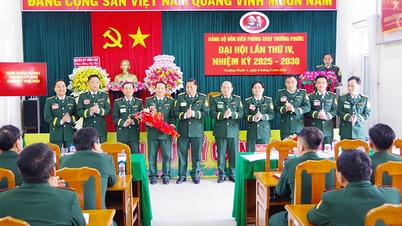
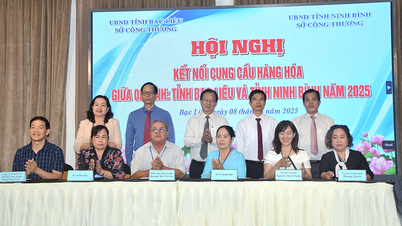
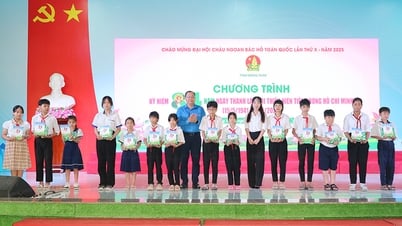
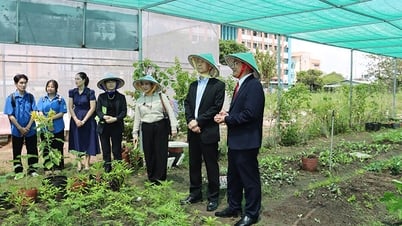
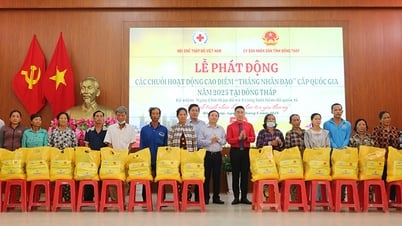
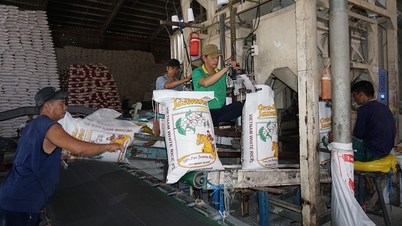




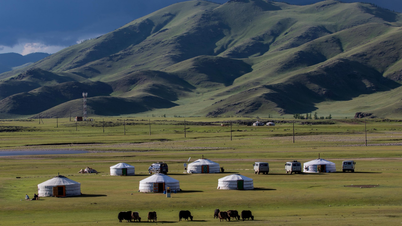

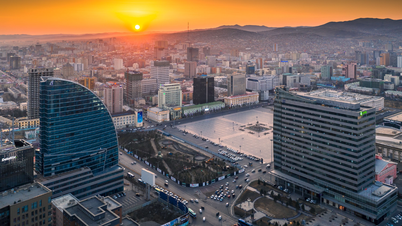

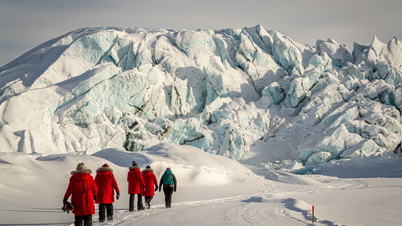
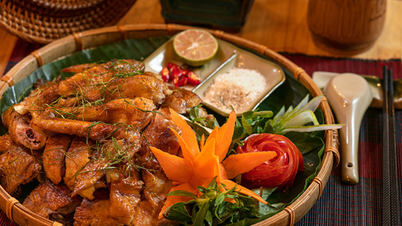

































![[Photo] Prime Minister Pham Minh Chinh talks on the phone with Singaporean Prime Minister Lawrence Wong](https://vphoto.vietnam.vn/thumb/402x226/vietnam/resource/IMAGE/2025/5/8/e2eab082d9bc4fc4a360b28fa0ab94de)












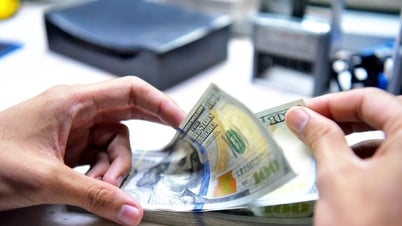

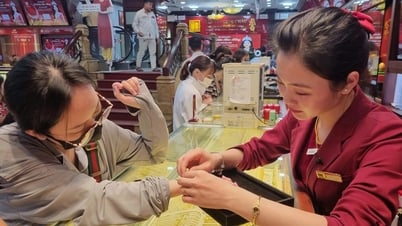
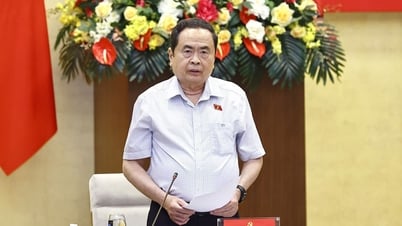

















Comment (0)